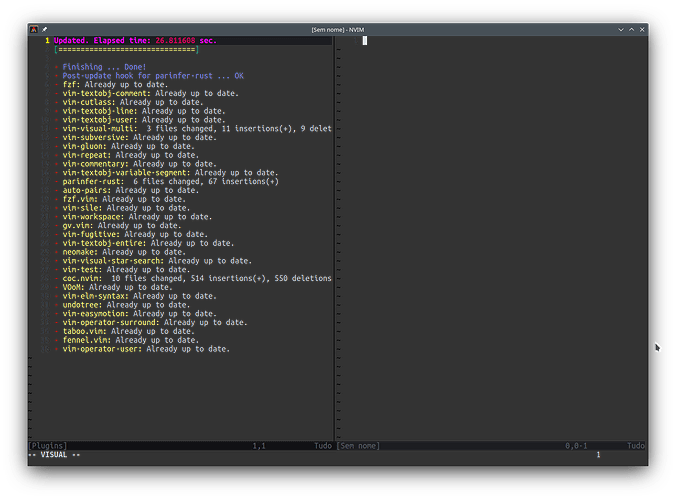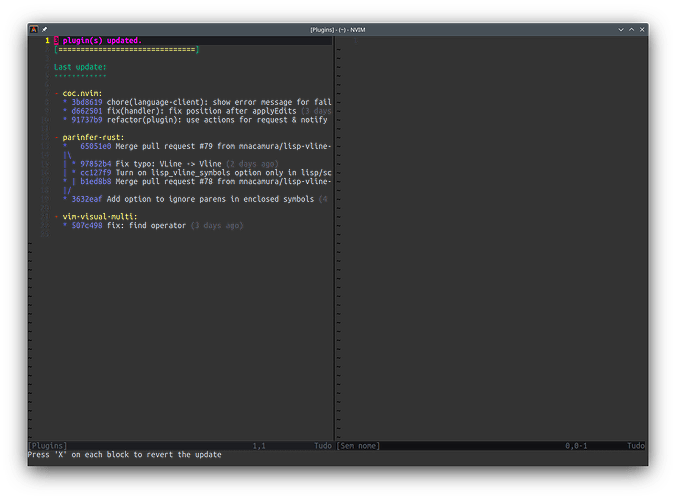I’m planning on long going rewrite of plug.kak from scratch. This topic meant to get in touch with plug.kak users, to hear some ideas, and suggestions. The main reason of rewriting plug.kak is that it is hard to change and debug, but I’m also very open for new ideas and thinking about making it easier to plug into plug.kak to extend it with new keywords.
My main goals for plug.kak were and still are:
- A plugin manager:
Not only download plugins, but see git history, changelogs, revert to older versions, and so on; - A declarative configuration manager:
Provide a sane way to encapsulate plugin configurations withinplugcommand; - Sane way to interact with build tools that plugin use;
- Easy installation of plugins from different repositories and git forges, as well as possibilities to load local plugins;
- Be fast;
I’m thinking of rewriting this plugin from scratch, and I’m thinking of a better implementation language for it, rather than posix sh, maybe Perl. It seems that Perl should have less problems running on BSD or MacOS. There are some possibilities of speed problems though.
I welcome any ideas and suggestions, feel free to discuss features that you miss or want in plug.kak to be presented

